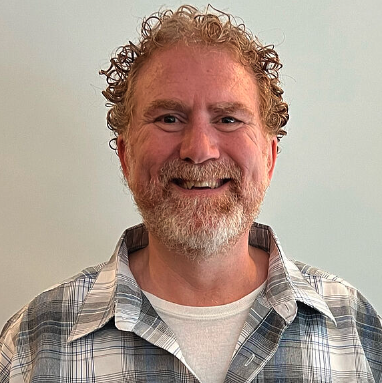You may be surprised that a “democratic” country like Germany, with the past we know, would engage in a religious cleansing today. Who wouldn’t be? Nevertheless, as hard as it is to believe it, what some called a “cultural genocide” (Cultural genocide is the systematic destruction of traditions, values, language, and other elements that make one group of people distinct from another) is happening today in Germany, touching thousands of lives in some of the German landers.
The target of this cleansing: The Scientologists. Whatever you think or know about Scientologists, whether you think you like them or not, what we are going to expose goes beyond the boundaries of what should be tolerated from any State, moreover from a founding member of the European Union.
Sect Filters in Germany
As was reported recently by USCIRF (US Commission on International Religious Freedom) in a report called “Religious Freedom Concerns in the European Union”, for several decades now, Germany practiced what they call the “sect-filter”, which consists of the following: Anybody looking for a job, or for doing business with public institutions and companies, should sign a statement that she or he is not a Scientologist nor does she or he “uses the technology of L. Ron Hubbard” (the founder of Scientology, 1911–1986).
In fact, these sect filters go as far as asking if you or any of your employees or even volunteers have attended a lecture organized by a Scientology group, Church or linked organization during the last three years. If your answer is yes, then you will never be able to be retained for a job in a public institution, or even in a private company or association which has contracts with a public institution. And if you represent a company, you will have to terminate contracts with any person (whether it is one of your employees or an external contractor) who would answer yes to the above questions, if you want to keep doing business with public institutions.
While you would think that this would only apply to sensitive jobs or contracts, in fact, these sect filters also apply to jobs like tennis coach, gardener, marketer, engineer, architect, printer, IT expert, events manager, constructor, trainer, accounts auditor, driving school teacher, programmer, supplier of waste sacks and waste bags, web designer, interpreter etc.
Asking about the religious beliefs of a candidate before hiring them, and making it a factor of decision in the hiring process, is of course absolutely illegal. It’s illegal per the EU Employment Equality Directive which requires all Member States to protect against discrimination on grounds of religion and belief in employment, occupation, and vocational training. But it’s also illegal per the European Convention of Human Rights, as it’s a blatant discrimination based on religious grounds, and so violates Article 9 (Freedom of Religion or Belief) and Article 14 (right to non-discrimination).
In fact, there are dozens of court decisions in Germany which judged that such “sect filters” were illegal, including some by federal higher courts, and that they constitute a violation of the right to non-discrimination of the Scientologists, many of them adding that Scientology and Scientologists were to receive protection under article 4 (on Freedom of religion or belief) of the German Fundamental Law (German Constitution).
Unfortunately, the sanctions and penalties resulting from these court rulings seem to be of no effect on some landers as Bavaria, and they continue the practice of “sect filters” every day as if nothing happened.
The EU Commission Corrupted by the German Sect Filters
What is even more concerning, is that such “sect filters” of Germany can be found by the hundreds on the EU official website for European public tenders, TED[1]. The European Commission is then unwillingly forwarding these discriminatory practices, without having yet tried to correct them.
Since the beginning of 2023, more than 300 German tenders containing “sect filters” discriminating against anyone belonging to the Church of Scientology or associating with Scientologists appeared on the EU website.
Germany, in addition to being aware of its own court decisions, could have corrected the situation in 2019 when questioned by the United Nations Special Rapporteurs on Minorities Issues (Fernand Varennes) and the one on Freedom of Religion or Belief (Ahmed Shaheed) in these terms:
“…we would like to express our concern about the continued use of measures that explicitly prevent individuals from obtaining grants and employment opportunities otherwise extended to the general population, on the basis of religion or belief. (…) Individuals identifying as Scientologists should not have to endure undue scrutiny nor disclose their beliefs…”
UN Special Rapporteur on Freedom of Religion or Belief & UN Special Rapporteur on Minority Issues Ref: AL DEU 2/2019
But it didn’t and chose to continue erring on the sides of the religious cleansers.
Can you imagine that because of your religious or philosophical beliefs, you’d be barred from applying to jobs for which you have perfect and legitimate qualifications? Even if your qualifications are those of a competent gardener, the fact that you would belong to your religious group would stick on you an infamous label preventing you from getting the job that would feed your family. Without a job, without a salary or resources, death is not far. And when death is involved and planned for a category of citizens belonging to a certain religious group, genocide is not far either.
Dehumanization
This kind of discriminatory practices already happened in history, unfortunately in many places. And we know where it leads. Dehumanization of part of a population is a way to justify future hate crimes. The sect filters are in some way dehumanizing Scientologists. They are not anymore full citizens, but some kind of sub-citizens, who do not enjoy the same rights than others when it comes to being able to work. By using those “sect filters”, the German authorities also try to punish people who, even not being Scientologists, would associate with Scientologists in any manner, increasing then the feeling of being segregated and ostracized by thousands of German citizens, targeted and selected on the basis of their belief.
But the dehumanization of Scientologists by Bavarian authorities goes even further. On the 30th of September 2020, the Minister of Interior of the Bavarian government Joachim Herrmann, gave a press conference to present a new edition of the brochure “The Scientology System” and a short film “10 Tips on How Not to Get Fooled – This Time by Scientologists”. Inter-alia, the film featured images explaining how to throw Scientology books into the garbage (burning them may have seemed too old-fashioned) and depicting Scientologists as robots not to be trusted. They almost reached here the pinnacle of dehumanization.
Hate Crimes
Only a few weeks after this press conference, on December 12, 2020, an arson attack occurred against the Church of Scientology of Berlin. Sometime a bit later, stones were thrown through the windows of the Church of Scientology of Munich. This kind of hate crime doesn’t just happen. They result from a climate of hate and stigmatization. Anyone who has studied genocides knows that before a genocide could occur, a long process of undermining by hate propaganda must take place. Hatemongers come first and then hate crimes occur. When the hatemongers are a government, then hate crimes become easy, as the perpetrators may even feel they are backed by their own government. And in fact, this is the case in Germany.
As Franco-Israeli Jewish philosopher Georges Elia Sarfati wrote in New Europe in May 2019,
“Is Germany in 2019 really the democratic state we believe? Are freedom of conscience and expression respected by the authorities, as most Europeans think? There is every reason to believe that this is not the case when we consider the poor faith trials, as well as the discrimination suffered by the followers or sympathisers of the Church of Scientology whose inspiration and value system have their source in the thought and work of the writer L. Ron Hubbard. (…) Has Bavaria, once known for its strong pro-Nazi tradition, not overcome this shameful tradition of quarantining a minority? As a Franco-Israeli scholar, I wonder about the persistence of ways that defeat the idea of a Europe with tolerance and equality (…) Discrimination of persons is not an abstract notion. It is a silent process that leads to exclusion, marginalisation and stigmatisation. Exclusion, in this case, targets people who are at risk of unemployment. The economic and social marginalisation that this situation often entails is a factor of desocialisation. As for the stigmatisation that results, it is to banish those who are the object of this double indignity.”
Franco-Israeli Jewish philosopher Georges Elia Sarfati
Will Religious Cleansing Continue?
There is no doubt that these shocking practices, which can be seen without forcing imagination as a system of religious cleansing, are aimed at preventing a certain category of people from earning an honest livelihood, with the ultimate purpose of erasing their particular religious group in Germany. In fact, the Bavarian authorities are not even shy about it. What’s more intriguing is the fact that the European Commission did not yet intervene to put an end to the practice of “sect filters” in its public tenders’ website. This has certainly gone unnoticed for some time. But it should not continue now. European Union faces many challenges. It’s easy to cast stones at undemocratic countries and blame them for their criminal behaviours. But the real challenge is to track down these criminal behaviours among the countries of the Union and be efficient enough to put an end to them. Without that, the Union will lose its meaning, and its fundamental rights charter will stay an empty shell.
[1] TED (Tenders Electronic Daily) is the online version of the ‘Supplement to the Official Journal’ of the EU, dedicated to European public procurement.














